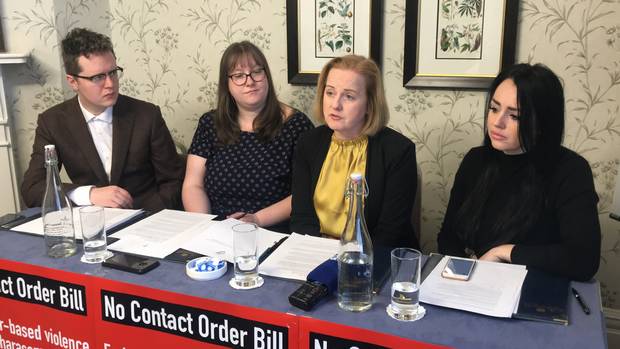By Harper Cleaves
A new report put out by the United Nations on homicide reveals that 87,000 women were murdered globally in 2017, and that over half of these women were killed by intimate partners or family members. This means that every hour, six women across the world are killed by a person they know.
In this context, a new bill has been put forward by Solidarity and Socialist Party TD Ruth Coppinger attempting to address these issues called the No Contact Order Bill. This bill would amend a prior law passed in 2018 on domestic violence, broadening some of the definitions of harassment to include any sort of unwanted attention, be that physical contact, or unwanted messages or gifts.
Preventative measures
It also expands who can be targeted in a “no contact order” situation, rather than referring only to (current or former) intimate partners or family members. With growing awareness about different forms of harassment, including coercion, this bill could act as a preventative measure, allowing women to exit abusive situations before physical violence becomes an issue. This bill is championed by Jessica Bowes, a woman who won a €150,000 settlement after being brutally beaten by a former partner in public. She is still contacted by this man and his social circle on social media. While this bill is an important step towards giving women and vulnerable people the autonomy to cut off abusers and also setting a precedent to have different forms of abuse recognised, the Socialist Party has no illusions that this bill alone is enough.
No confidence in courts
Many women have limited access to courts, or lack the confidence to come forward to authorities about sexual assault or domestic violence. This fear is exemplified in the case accusing rugby player Paddy Jackson last year, in which his accuser’s reputation was publicly dragged through the mud and her choice of underwear was posited as evidence of consensual sex. Furthermore, in the context of a housing crisis, women and abused people find themselves putting up with horrific assault because the alternative is homelessness.
We need an economy that is not based on exploitation and the blind drive for profit – which disproportionately affects women and LGBTQ+ people – and instead centres on human need. This should include a massive expansion of and investment in affordable public housing and the creation of a national health service that is free at the point of use. We need to end the rule of a capitalist patriarchal system and workers’ exploitation that leaves six women dead every hour at the hands of someone they know.












